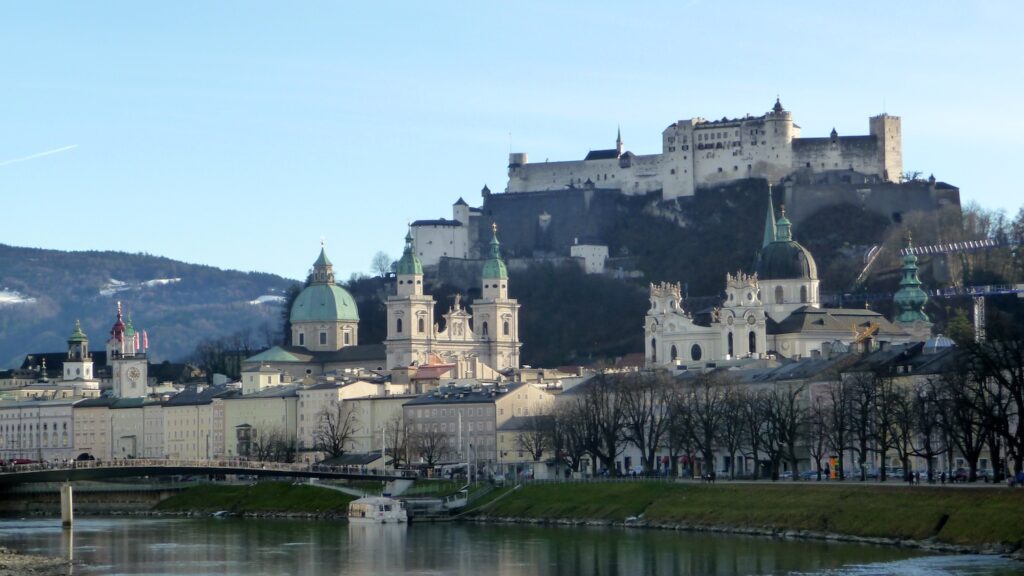
Dear Parishioners and Friends,
Salzburg, Austria is one of the most beautiful cities in the world. Its founding dates back to Roman times and its name means “Salt Castle.” This name derives from the barges that carried salt on the Salzach River, which were subject to a toll in the 8th century, as was customary for many cities situated on European rivers. The many salt mines in the area around Salzburg made it a very prosperous city back in the Middle Ages. The Festung Hohensalzburg, a fortress built on top of a mountain in the 11th century protected the city down below during times of war and unrest. Today, in addition to the house where Mozart was born, and the various sites where scenes from The Sound of Music were filmed, the fortress is a popular tourist attraction, and it is especially impressive at night when it is illuminated.

So, when Jesus talks about his disciples being “salt of the earth” and “light of the world,” the city of Salzburg seems to encompass both images, including the image of a city set on a mountain that cannot be hidden. But of course, those images are just a starting point for something much deeper and more meaningful, especially as we try to understand them in relation to our identity as followers of Jesus and what he expects from us.
Jesus instructs the disciples: “Your light must shine before others, so that they may see your good deeds and glorify your heavenly Father.” His words are curious here, because just one chapter later in Matthew 6:1, he will tell us, “Take care not to perform righteous deeds in order that people may see them.” In fact, we will hear these words in a few weeks’ time on Ash Wednesday. How do we reconcile these seemingly contradictory messages? Perhaps the key is the motivation for the deeds that make up a Christian life. They shouldn’t be done for one’s own glory or benefit, but to give glory and honor to God through a life of loving service to others.
And so, when Jesus calls his disciples to be “the light of the world,” we hear in our first reading exactly how that light ought to shine. Sharing your bread with the hungry, sheltering the oppressed, clothing the naked, not turning one’s back one’s own. In other words, by our care for others in need, the light of Christ given to us at baptism will be manifested.
Of the many hallmarks of the saints, one of them seems to be a dedication to good works that naturally draw attention, coupled with a desire to deflect attention from oneself completely. For example, during her acceptance speech for the 1979 Nobel Peace Prize, Saint Teresa of Kolkata said, “I personally am most unworthy… But I am grateful and very happy to receive this award in the name of the hungry, of the naked, of the homeless, of the crippled, of the blind, of the leprous, of all those people who feel unwanted.” As followers of Christ, we are called to a high standard indeed – not only to do good works, but to do them selflessly as well.
As for the image of light found in both the Gospel as well as the first reading from Isaiah, when he says that by tending to the needs of others that light shall rise before us in the darkness, our psalm this week also underscores the firm foundation of the just. We are told that the upright person shall never be moved, that his heart is firm and steadfast. As Jesus likens his disciples to a city on a hill that cannot be hidden, the psalm offers an additional image of the just person as a light in darkness.
“Then your light shall break forth like the dawn…” Who has been an example of faith and a guiding light for you in times of darkness, or pain, or despair? How are you being called to be this light for others?
Blessings on your week ahead!
Fr. Tim Shreenan, O.F.M.Pastor

